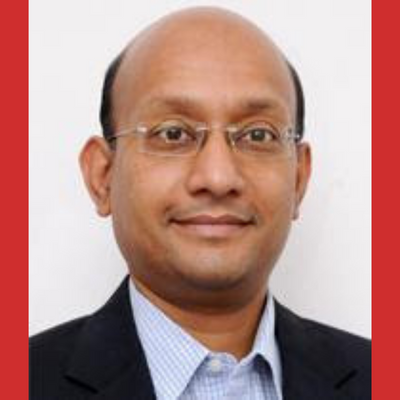
Prof. Ranjan Bose is currently the Director of IIIT-Delhi. Prior to joining IIIT-Delhi, he was Microsoft Chair Professor in the Department of Electrical Engineering at IIT Delhi. He has also served as the Head of Bharti School of Telecom Technology and Management and as the founding Head of Center of Excellence in Cyber Systems and Information Assurance at IIT Delhi. He received his B.Tech. degree in Electrical Engineering from IIT Kanpur and M.S. and Ph.D. degrees in Electrical Engineering from University of Pennsylvania, Philadelphia, USA. He is the author of the book Information Theory, Coding and Cryptography (3rd Ed.).
In an interview with Mr. Sachin Gaur, Executive Editor discussed the digital implementation at institute level in sync with advanced technologies and research
1. Technical Institutes are primarily teaching institutes. IIIT Delhi, however, seems greatly focused on research. Could you share with us how the research in the Institute is organized?
Today, the focus of Higher Education Institutes (HEIs) is shifting from being purely teaching institutes to more research-oriented, and also setting up a healthy ecosystem for innovation leading to entrepreneurship. IIIT-D recognizes the importance of this triple helix of education-research-entrepreneurship. At IIIT-D, all faculty members are strongly encouraged to carry out cutting-edge research and publish their work at top venues. The Institute runs a strong yet flexible Ph.D. program where interested students can join the program around the year. Many UG students also are initiated into research through projects, and several UG students publish at top conferences. Exemplary research is recognized through research excellence awards. The research contributions of all faculty members are externally reviewed by domain experts yearly as a part of their annual appraisals, and constructive feedback is provided to the faculty members. External research funding is an important instrument for the sustainability of the research ecosystem, and sponsored projects are essential for strengthening a curiosity-driven and applications-inspired research culture in higher education institutes. The Innovation, Research and Development (IRD) division, headed by a Dean, is responsible for strengthening the research ecosystem at the Institute. It organizes internal grant-writing workshops regularly. The Institute has recently started its internal ‘grand challenges program’ where it funds 1-2 key moonshot ideas. There is also a strong penchant for international collaborative research at IIIT-D. Faculty members frequently consult for industry, and there is an enabling mechanism for that at the Institute. IIIT-Delhi organizes an annual outreach event called Research, Innovation, and Incubation Showcase (RIISE). In April 2022, the RIISE event had eight key themes – Artificial Intelligence, Core Research, Cyber-Physical Systems, Design, Healthcare, Lab to Market/ Start-ups, Sustainability, and Technology as a Public Good.
2. In your vision, how can India be leading in new technological advances, especially for ground breaking R&D to happen at institutes like IIIT Delhi? What can we do to move forward?
Technological advances have to come at two levels. First, there are a large number of practical problems and on-the-ground challenges which need technological intervention, often involving deep-tech. The second set of problems pertains to groundbreaking technological advancements that can ‘move the needle’. Research-led institutes have a significant role to play in both dimensions. The research institutes should be fertile ground for industry, government, and academic collaboration. HEIs must create an ecosystem that enables applied research, often with industry partnerships. Internal grand challenges programs should be implemented because they can act as catalysts. Research questions should be taken up where both the risks and rewards are high, and the likely impact on society is most promising. Provisions should also be made to recognize and reward ‘grand-failures .’ For this, close interaction with the industry is a must. There has to be an inbuilt mechanism for seamlessly identifying deep-tech research that can be ‘translated’ to impactful products. Finally, it should be reiterated that science should ask consequential questions, and technology matters only if it can improve human lives.
IIIT-Delhi is deeply committed to carrying out meaningful and impactful research with the dual purpose of pushing the knowledge boundaries and achieving the national goal of technological self-reliance. IIIT-D has nine research Centers (including the Center for AI, Design and New Media, Healthcare, Sustainable Mobility, Quantum Technologies, etc.) which are all interdisciplinary, and where a lot of industry-focused translational research is carried out. The faculty members at the Institute are engaged in solving some pressing societal problems and developing scalable solutions. These span the entire gamut, including the integrated federated healthcare platform, the contactless ticketing project for the NCR, improving maternal healthcare for ASHA workers, an autonomous mobile robot for Delhi roads, low-cost healthcare devices, etc. Some futuristic ideas being explored include Brain-Computer Interface to augment attention, AI to uncover carcinogenic human metabolites, CCTV-based Crime Retrieval and Multi-modal Surveillance, Computational gastronomy, etc. The Institute is also actively contributing to the Delhi Research Implementation and Innovation (DRIIV) program supported by the Office of the Principal Scientific Adviser, Government of India, for solving emerging challenges in the national capital region.
3. Health Sector Professionals in India lack awareness of emerging technologies. How do you think IIIT can contribute to capacity building?
There is a definite need to increase technological awareness among Health Sector Professionals. IIIT-D has a strong commitment to upskilling and reskilling, and has been in sync with the needs of the industry in terms of capacity building. The Center of Excellence in Healthcare at IIIT-D is already making scientific advances in data-driven public health through research, education, and engagement with industry and policy. The Center is also planning to design training programs for health sector professionals.
Additionally, medical robots and autonomous machines in the medical field are transforming how surgeries are performed and freeing up quality time for doctors to engage with patients. The technology innovation hubs (TiH) of IIIT-D and IITD have together set up India’s first Medical Cobotics Center at IIIT-D. In the near future, this Center will be a technology-enabled medical simulation/ training facility for young resident doctors, besides acting as a validation center for the research outcomes in healthcare robotics and digital health. The Centre would facilitate training healthcare professionals, paramedical staff, technicians, engineers, and researchers.
4. The Health sector comprises sensitive data. Especially in India, we are planning for digital health to go mainstream. What are your suggestions for safeguarding the future of the Indian health sector against cyber threats?
To make the Indian health sector robust against cyber threats, one would need a multi-pronged approach:
There is an immediate need to set up national standards to protect sensitive patient health information, and to prevent it from being disclosed without the patient’s consent or knowledge. The current legal framework in India offers limited data protection under the Information Technology Act, 2000. The standardization activity will lead to better data collection (also crucial from the application of AI), more secure data storage, and responsible data sharing.
We expect healthcare data to become increasingly interoperable; therefore, adequate measures must be put in place for data security. Sharing healthcare data also means sharing the risks inherent in protecting that data. All critical databases should be continuously backed up, and proactive steps should be taken to reduce the attack surface. The weakest link in the chain is often the person operating the system. Therefore, regular cyber-hygiene training should be mandatory in organizations dealing with health-related data, and all ‘large’ medical establishments should have a Chief Cyber Security Officer (CSSO).
The quest for ‘data security’ is a journey with no finish line. Hence, adequate resources need to be continuously allocated for research to build future frameworks for better protection of sensitive healthcare information. Many of these research activities can be carried out in academic institutions (like IIIT-D) in partnership with hospitals. During such research and developmental activities, testing is often done using real-life data. During the development and testing phase, all sensitive data should be anonymized before use.
The use of AI-based Healthcare chatbots and conversational AI-powered tools is expected to grow exponentially. The benefits range from providing timely access to pertinent, precise, and accurate healthcare information to keeping track of follow-ups, cancellations, and patient satisfaction. However, while designing these chatbots, one has to be careful about issues related to explicit consent-to-use healthcare data, safety and transparency, data privacy, and, most importantly, algorithmic fairness and biases. Healthcare is a lot about trust in the system, and the failure of trust and accountability has to be prudently guarded for AI-enabled healthcare systems.
Finally, we should always be aware of what technology ‘can do’ and ‘cannot do’ in healthcare.

